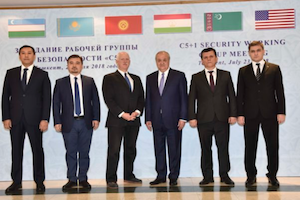Dariga Nazarbayeva's Political Ambitions Effectively Ended by President Tokayev
By John C. K. Daly
June 18, 2020, the CACI Analyst
Few processes are more opaque than political succession in the post-Soviet space, which is usually dominated by elite cronyism infighting. The practice becomes particularly pronounced when the departing leadership dates from the Soviet era and attempts to put its stamp on the transition to the future. In general, the leadership seeks to ensure a peaceful transition of power, even if circumventing the wishes of the departing leader. The latest post-Soviet nation to transit the process is Kazakhstan, where on May 2, Kazakh President Kasym-Zhomart Tokayev, having succeeded Nazarbayev as president 14 months earlier, unexpectedly posted a single-sentence announcement that he had removed Dariga Nursultanovna Nazarbayeva from her position as Senate speaker.
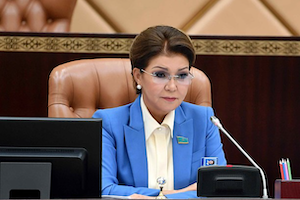
Post-COVID-19: Challenges and Opportunities for Central Asia
By Bakhrom Radjabov
June 4, 2020, the CACI Analyst
Since January, COVID-19 (coronavirus) has reached the level of a global pandemic. At first, some Central Asian republics seemed to be virus-free islands with zero confirmed infection cases. Afghanistan confirmed its first COVID-19 case on February 24, followed by a closure of the borders with other Central Asian republics. Kazakhstan discovered its first cases of COVID-19 on March 13, and Uzbekistan on March 15. Kyrgyzstan confirmed its first case on March 18 whereas Tajikistan did not report any cases until April 30. Before this date, the country allowed mass gatherings, including the celebration of Navruz, which was cancelled by other Central Asian governments. Turkmen authorities have so far not officially reported any cases of COVID-19 in the country.
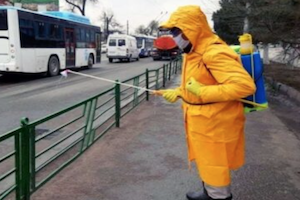
U.S. Presence in Central Asia: Realities and Perspectives
By Nurlan Aliyev
May 27, 2020, the CACI Analyst
In early February, U.S. Secretary of State Michael Pompeo visited Kazakhstan and Uzbekistan. He was received by the two heads of states in Nursultan and in Tashkent, Pompeo attended a C5+1 Ministerial with the foreign ministers of the five Central Asian republics to stress “U.S. support for a better connected, more prosperous, and more secure Central Asia” (State.gov). These thoughts are reflected in the new U.S. Central Asia Strategy. (State.gov). The renewed U.S. interest in Central Asia comes against the backdrop of China’s growing economic involvement in the region and Russia’s strong political and security relations with the Central Asian republics. Despite the Trump administration’s declarations of commitment to enhancing relations with the regional states, the perspectives of the U.S. in Central Asia should be examined.
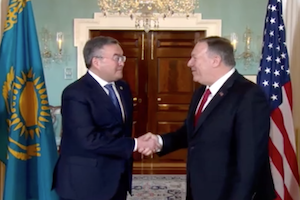
Central Asia Caught in Economic Perfect Storm amid Oil Price Collapse and COVID-19 Pandemic
By Azad Garibov
May 12, 2020, the CACI Analyst
The collapse of oil prices and outbreak of a pandemic seems to catch Central Asia in an economic perfect storm. Some regional energy exporters will suffer directly from low oil prices and the pandemic; others will face adverse economic consequences more indirectly, in the form of reduced gas demand in China or decreased remittances sent by migrant workers.
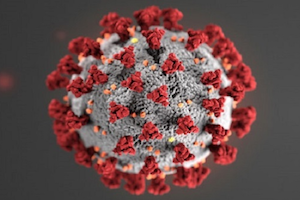
New Strategy, Old Game: The Realigning Geopolitics of Central Asia
By Farkhod Tolipov
March 26, 2020, the CACI Analyst
Three recent events have recently drawn the attention of the public, experts and official circles in Central Asia: U.S. Secretary of State Mike Pompeo’s visits to Kazakhstan and Uzbekistan and his meetings with the presidents of these states on 1-4 February 2020; the “C5+1” meeting in Tashkent; and the announcement of a new U.S. Strategy for Central Asia 2019-2025. In Central Asian capitals as well as in Moscow and Beijing, these three events served to alter the existing geopolitical calculus: Washington effectively reminded Central Asians and U.S. rivals Russia and China of itself and its interests. It thus seems that the old Great Game continues.
